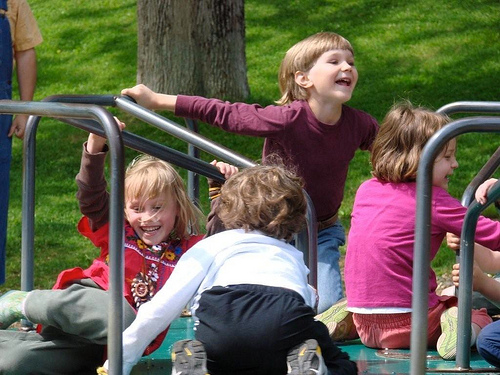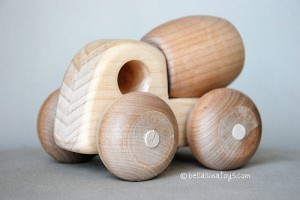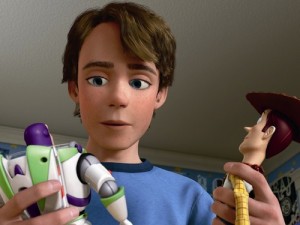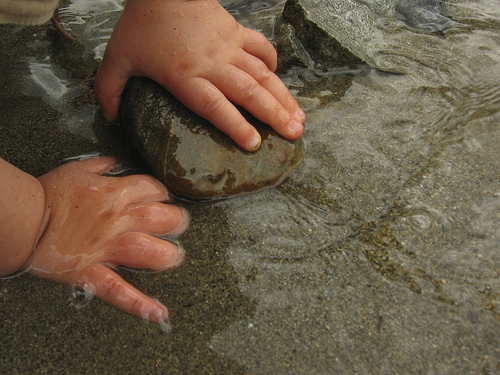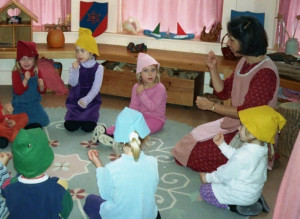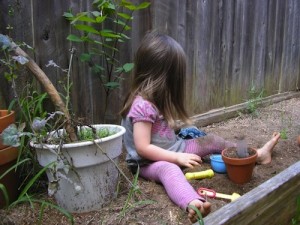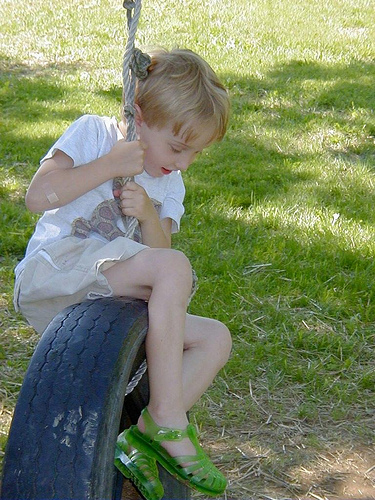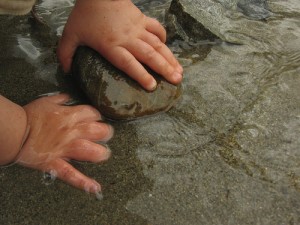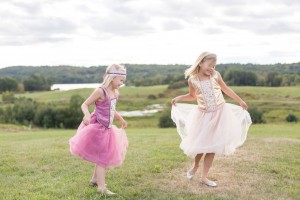Lenore Skenazy, who inspired the “free range” parenting movement when she allowed her 9-year-old son to take the subway home by himself and then wrote about it, has proposed that May 22 be declared “Take Our Children to the Park … and Leave Them There Day.” She quotes some important statistics that our fear of crime is rising while, in fact, the crime rate has been steadily declining for the past 20 years. Are our children paying the price of our fear by losing the freedom of free, outdoor play? Read Lenore’s recent post from her blog, “Free Range Kids” which was republished this week in the New York Times.
Don’t bother me, I’m playing!
In another article published this week, librarian Barbara Fister challenges some of her colleagues who believe that children should be using Twitter, Facebook, and other Web 2.0 applications in order to become technologically literate. Barbara points to the important neurophysiologic and developmental benefits of active free play for young children, and defends play as a “basic human right” of childhood. Read her article “Playing for Keeps” at libraryjournal.com.
Will you spend time outdoors with your children this weekend? What are their favorite places to play outdoors?

